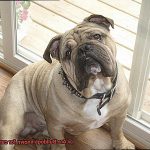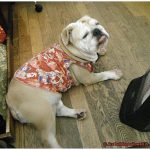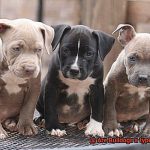Are Boxers and Bulldogs in the same family?
Welcome to our blog post about Boxers and Bulldogs. These two adorable breeds of dogs are sure to steal your heart with their charm and friendly nature. But are they in the same family? Let’s find out.
Boxers, with their athletic build and boundless energy, belong to the Working Group. They’re always ready for a game of fetch or a run in the park. Bulldogs, on the other hand, have stout and muscular bodies that fall under the Non-Sporting Group. They may not be as active as Boxers, but they make up for it with their lovable and laid-back personalities.
Join us as we explore the similarities and differences between these delightful canines. We’ll dive into their physical traits, temperaments, and more. Get ready to be amazed by the incredible diversity found within the canine kingdom. So grab a cup of coffee (or a treat for your furry friend.) and let’s get started on this pawsome journey.
Exploring the Ancestry of Boxers and Bulldogs
Contents
- 1 Exploring the Ancestry of Boxers and Bulldogs
- 2 Physical Differences Between Boxers and Bulldogs
- 3 Temperament and Training Requirements for Both Breeds
- 4 The Advantages of Owning a Boxer or Bulldog
- 5 How to Choose Between a Boxer and Bulldog as a Pet
- 6 Tips for Properly Caring for Your Boxer or Bulldog
- 7 The Pros and Cons of Owning a Dog From the Molosser Group
- 8 Conclusion
In this article, we will delve into the history and development of these two beloved breeds, shedding light on their shared lineage and distinct characteristics. So, grab a cup of coffee, get cozy, and let’s embark on this enlightening journey.
Unveiling their Ancestry: Molossers in Ancient Times
Boxers and Bulldogs belong to the illustrious Mastiff family, known as the Molosser group. This ancient lineage can be traced back to Greece, where these remarkable dogs played vital roles in various aspects of society. From guarding livestock to fighting in wars, their strength and loyalty were highly valued by the Greeks.
Boxers: The German Guardians
In the 19th century, Germany witnessed the emergence of the Boxer breed. Developed by crossing various breeds, including Bulldogs, this versatile working dog quickly gained recognition for its athleticism, high energy levels, and playful nature. Today, Boxers are cherished for their unwavering loyalty and affectionate temperament.
Bulldogs: From Bull-Baiting to Beloved Companions
The history of Bulldogs dates back even further, with origins in 13th century England. Initially bred for bull-baiting – a cruel sport involving dogs attacking bulls – Bulldogs eventually found themselves at the center of a transformative shift when bull-baiting was banned in the early 19th century. This led to a shift in breeding focus towards companionship and guardianship, resulting in the development of the modern Bulldog breed we adore today.
Spotlight on Differences: Appearance and Temperament
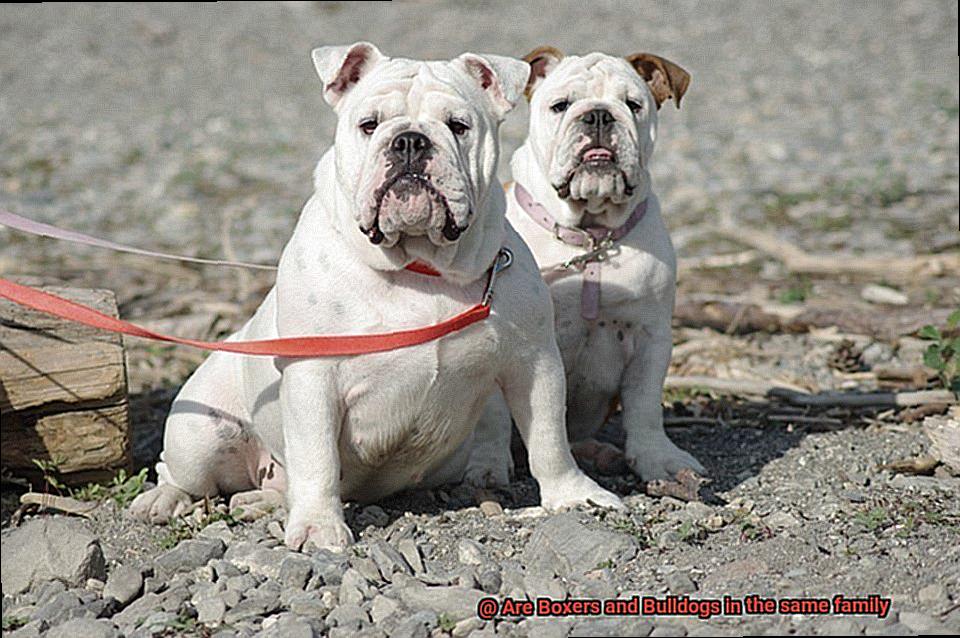
While Boxers and Bulldogs share a common ancestry as part of the Molosser family, they possess distinct characteristics that set them apart. Boxers present an athletic build with a sleek coat, exuding a sense of energy and playfulness. Bulldogs, on the other hand, boast a stocky and muscular frame, adorned with their iconic wrinkled face and short coat. Their calm and gentle temperament perfectly complements their sturdy appearance.
Health Considerations: Nurturing Their Well-being
Both Boxers and Bulldogs are prone to certain health issues. Boxers have an increased risk of heart problems and specific types of cancer, while Bulldogs often experience respiratory issues due to their short muzzles. As responsible owners, it is crucial to prioritize regular vet check-ups, a balanced diet, and appropriate exercise routines to ensure the overall well-being of our furry friends.
Physical Differences Between Boxers and Bulldogs
Size:
- Boxers: Medium to large-sized dogs, typically weighing between 50 to 70 pounds.
- Bulldogs: Smaller in size, weighing around 40 to 50 pounds.
Body Structure:
- Boxers: Streamlined and agile body structure with a deep and broad chest.
- Bulldogs: Stocky and heavyset body structure with a wide chest.
Facial Features:
- Boxers: Pronounced muzzle and square-shaped head with strong jaws.
- Bulldogs: Shorter muzzle with folds of loose skin on the face, pushed-in nose, and undershot jaw.
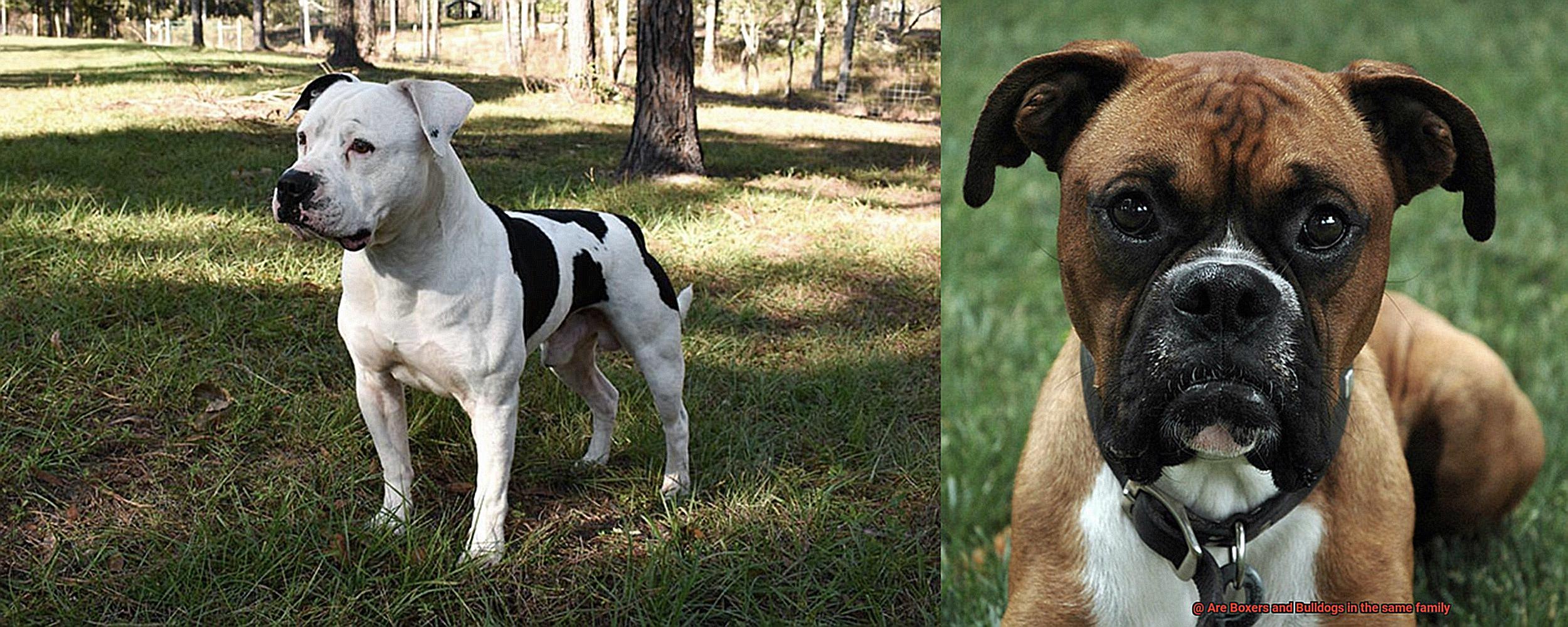
Coat:
- Boxers: Short and smooth coat that lies close to the body, requiring minimal grooming.
- Bulldogs: Short and fine coat that is dense and smooth, may have wrinkles on the face, neck, and shoulders.
Tail:
- Boxers: Typically have a docked tail for aesthetic purposes or to prevent injuries during activities. In some countries, natural long tails are allowed.
- Bulldogs: Naturally short and screw-shaped tail that is set low on the body.
Ears:
- Boxers: Naturally erect ears that are set high on the head. Ear cropping for cosmetic reasons is becoming less common.
- Bulldogs: Naturally floppy ears that are set wide apart on the head.
Temperament and Training Requirements for Both Breeds
Boxers and Bulldogs may not be in the same family, but they do share some similarities when it comes to temperament and training requirements. Both breeds are known for their friendly and affectionate nature, making them excellent family pets.
Boxers’ Temperament and Training Requirements:
- Energetic and Playful: Boxers are full of energy and love to play. They have a natural curiosity and zest for life, which can sometimes translate into stubbornness if not properly trained.
- Highly Intelligent: Boxers are quick learners and highly intelligent, which makes them eager to please their owners.
- Need for Mental Stimulation: It is important to provide Boxers with mental stimulation through puzzle toys or training sessions to prevent boredom and destructive behavior.
- Consistency is Key: Boxers require consistent training and positive reinforcement techniques to become obedient and well-behaved companions.
Bulldogs’ Temperament and Training Requirements:
Quick Learners: Bulldogs are generally eager to please their owners and are quick learners.
- Sensitivity to Harsh Training: Bulldogs can be sensitive to harsh training methods, so it is essential to use positive reinforcement techniques such as rewards and praise.
- Socialization is Important: Bulldogs benefit from early socialization to develop into well-rounded dogs and prevent any potential aggression or fear-related issues.
Common Training Requirements for Both Breeds:
- Early Socialization: Both Boxers and Bulldogs benefit from early socialization to ensure they grow up to be well-rounded dogs.
- Consistency and Patience: Consistent training and patience are key for both breeds to achieve desired behavior.
- Positive Reinforcement: Both breeds respond well to positive reinforcement techniques such as rewards and praise.
- Regular Exercise: While Boxers have higher energy levels compared to Bulldogs, both breeds require regular exercise for good physical health.
The Advantages of Owning a Boxer or Bulldog
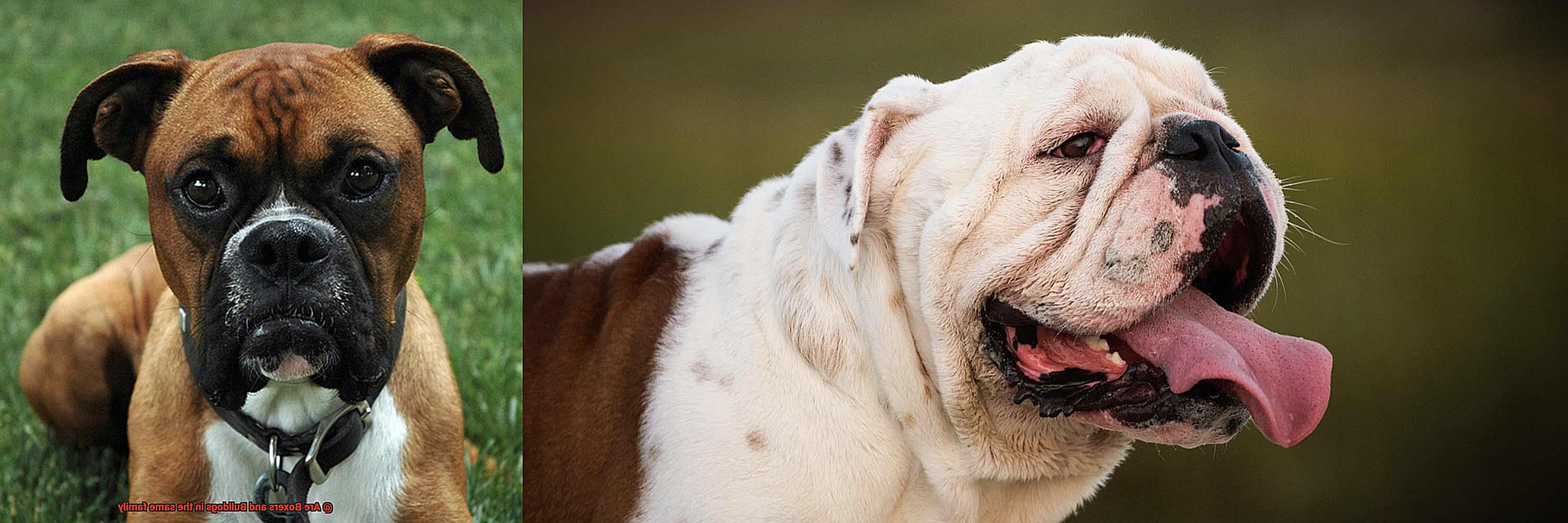
These breeds are known for their friendly and affectionate nature, making them excellent family pets. As an expert in the field, I am here to share the numerous advantages of owning a Boxer or Bulldog. So, let’s dive in and discover why these breeds are perfect for you.
A Family’s Best Friend:
Boxers and Bulldogs are great with children and tend to get along well with other animals, making them a popular choice for families. Their friendly nature ensures that they will quickly become your children’s best playmates and protectors.
Guardian Angels:
Both breeds possess natural protective instincts, making them excellent watchdogs. Their loyalty and courage make them fierce protectors of their loved ones, providing a sense of security for you and your family.
Low-Maintenance Grooming:
Say goodbye to excessive shedding and hours spent brushing fur. Both Boxers and Bulldogs have short coats that require minimal grooming. This advantage is perfect for individuals who prefer a cleaner home or have allergies.
Calm yet Playful:
Despite their muscular build, both breeds have a relatively calm and gentle demeanor. They are not hyperactive dogs, making them suitable for individuals or families who prefer a more relaxed pet. However, don’t be fooled – they still love playtime and will keep you entertained.
Adaptable Companions:
Whether you live in a small apartment or a spacious house, Boxers and Bulldogs can adapt to different living situations. As long as they receive regular exercise and mental stimulation, they will thrive in any environment. This makes them ideal for urban dwellers or those with limited outdoor space.
Intelligent and Trainable:
Both breeds are known for their intelligence and respond well to training. With consistency and positive reinforcement, they can quickly learn basic obedience commands and even more advanced tricks. Training sessions become a fun bonding experience for both you and your furry friend.
Relatively Good Health:
While no breed is completely free of health issues, Boxers and Bulldogs have relatively good health compared to some other dog breeds. Responsible breeding and proper care can help mitigate common health risks. Regular veterinary check-ups, a balanced diet, and regular exercise are crucial for maintaining their overall health.
How to Choose Between a Boxer and Bulldog as a Pet
Choosing the right breed of dog for your family can be a big decision. Boxers and Bulldogs are both popular choices for families and individuals looking for a loyal and loving companion. In this article, we will discuss the key factors to consider when choosing between a Boxer and Bulldog as a pet.
Physical Characteristics:
Boxers are medium-sized dogs with a muscular build. They have a square-shaped head and a sleek coat. Bulldogs, on the other hand, are smaller and more compact. They have a stocky build, a pushed-in nose, and pronounced wrinkles on their face.
Temperament:
Boxers are known for their energy, playfulness, and affection towards their owners. They are great with children and make excellent family pets. Bulldogs, on the other hand, are generally calm, gentle, and easygoing. They are friendly and make wonderful companions for individuals or couples.
Exercise Needs:
Boxers are highly energetic dogs that require regular exercise to prevent boredom and destructive behavior. They enjoy activities such as jogging, playing fetch, or participating in agility training. Bulldogs, on the other hand, have lower exercise needs and are more prone to becoming couch potatoes if not encouraged to stay active. Regular walks and moderate playtime are usually sufficient for Bulldogs.
Grooming Requirements:
Boxers have a short coat that requires minimal grooming. Weekly brushing is usually enough to keep their coat clean and healthy. Bulldogs, on the other hand, have a short, dense coat that requires regular brushing to control shedding. Their facial wrinkles also need special attention to prevent infections.
Health Considerations:
Boxers are prone to certain genetic health conditions such as hip dysplasia, heart problems, and certain cancers. Bulldogs, on the other hand, are known for their respiratory issues due to their flat faces, as well as joint problems and allergies. Potential owners should be aware of these health issues and take them into consideration.
Lifestyle Compatibility:
It is important to consider your lifestyle when choosing between a Boxer and Bulldog as a pet. Boxers are more suitable for active individuals or families who can provide them with ample exercise and mental stimulation. Bulldogs, on the other hand, are a better fit for those who prefer a more relaxed and low-energy pet.
Tips for Properly Caring for Your Boxer or Bulldog
To ensure that your furry friend stays healthy and happy, it’s important to provide them with proper care. From diet and exercise to grooming and socialization, here are some essential tips for properly caring for your French Bulldog.
Provide a balanced diet:
French Bulldogs are prone to weight gain, so it’s important to feed them a balanced diet that meets their nutritional needs. Consult with your veterinarian to determine the right type and amount of food for your dog. Avoid overfeeding and opt for high-quality dog food that is specifically formulated for French Bulldogs.
Regular exercise:
While French Bulldogs have a lower exercise requirement compared to some other breeds, they still require regular exercise to stay healthy. Daily walks and playtime are essential to keep them physically and mentally stimulated. However, be mindful of their heat sensitivity (due to their short snouts) and avoid excessive exercise during hot weather.
Grooming routine:
French Bulldogs have a short coat, but they still require regular grooming to keep their skin and coat healthy. Brush their coat a few times a week to remove loose hair and prevent matting. Pay special attention to cleaning their facial wrinkles to prevent infections. Additionally, regular ear cleaning and nail trimming are important parts of their grooming routine.
Dental care:
Dental problems are common in French Bulldogs, so establishing a dental care routine is crucial. Regularly brush their teeth using dog-friendly toothpaste and provide dental chews or toys to help maintain good oral hygiene.
Health check-ups:
French Bulldogs are prone to certain health issues such as respiratory problems, allergies, and joint ailments. Regular visits to the veterinarian for check-ups, vaccinations, and preventive treatments are essential for detecting and preventing potential health concerns.
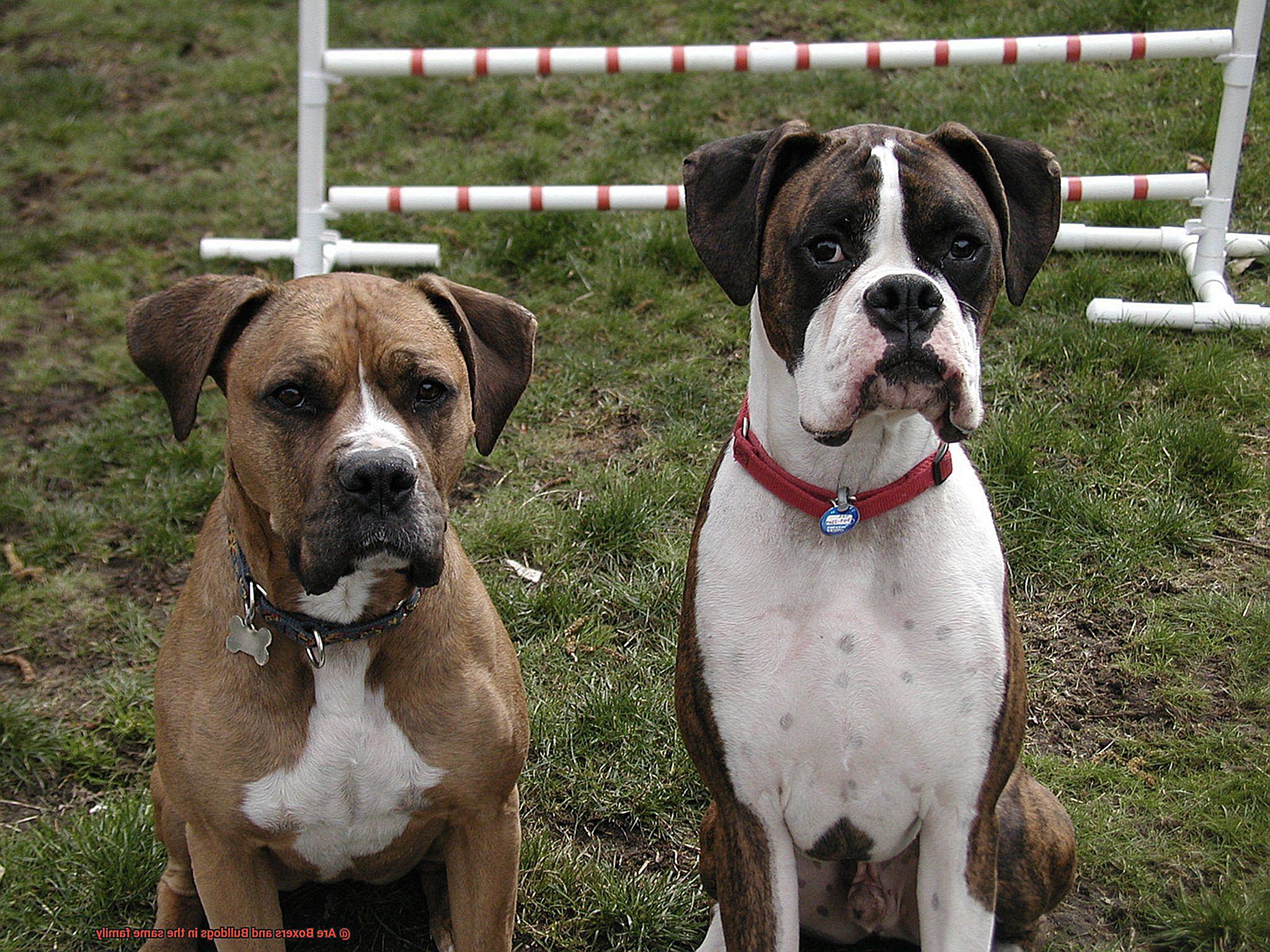
Socialization and training:
French Bulldogs are friendly and sociable dogs, but proper socialization and training are still important. Expose them to different people, animals, and environments from a young age to ensure they develop into well-rounded individuals. Basic obedience training is also important for their safety and well-being.
The Pros and Cons of Owning a Dog From the Molosser Group
Pros:
- Loyalty and Protective Nature: Dogs from the Molosser Group, including French Bulldogs, are known for their unwavering loyalty and protective instincts. They will fiercely defend their owners and make excellent family watchdogs.
- Suitability for Families: French Bulldogs, like many other Molosser breeds, are known for being great with children. They are patient, gentle, and can be a wonderful addition to any family.
- Stable Temperament: Molosser breeds often have a stable temperament, making them easier to train and handle. French Bulldogs are typically calm and composed, which can make them well-suited for first-time dog owners.
Cons:
- Size Considerations: French Bulldogs are small in size, but other dogs from the Molosser Group can be quite large. These larger breeds may not be suitable for individuals or families living in small apartments or confined spaces.
- Health Issues: Some Molosser breeds, including French Bulldogs, are prone to certain health issues. French Bulldogs can suffer from respiratory problems due to their brachycephalic (short-nosed) structure.
- Exercise Requirements: While French Bulldogs do not require excessive exercise, some Molosser breeds need regular physical activity to stay healthy and prevent weight gain. It’s important to provide them with enough exercise to avoid boredom and destructive behavior.
- Grooming Needs: French Bulldogs have a short coat that is relatively low maintenance. However, other breeds in the Molosser Group may require regular brushing or grooming to keep their coats healthy and free from matting.
b-pg5KbUO8s” >
Conclusion
In conclusion, Boxers and Bulldogs may not be in the same family, but they do share a common ancestry as part of the Molosser group. Over time, both breeds have developed distinct characteristics that set them apart.

Boxers, belonging to the Working Group, are athletic and full of energy. Their playful nature and boundless enthusiasm make them a joy to be around. Bulldogs, on the other hand, fall under the Non-Sporting Group and have a more laid-back temperament. They are gentle and patient companions who provide a sense of calm.
Although Boxers and Bulldogs may differ in appearance – with Boxers sporting a sleek coat and Bulldogs boasting a stocky build with adorable wrinkles – they both possess lovable qualities that make them excellent additions to any family.
When it comes to training, Boxers are highly intelligent and respond well to consistent methods. Bulldogs also catch on quickly but can be sensitive to harsh techniques. Both breeds benefit from early socialization to ensure they grow into well-rounded dogs.
Choosing between a Boxer or Bulldog as a pet should take into consideration your lifestyle. Boxers thrive with plenty of exercise and mental stimulation, while Bulldogs are better suited for those seeking a relaxed companion.
Owning either breed comes with numerous advantages: their friendly nature, adaptability to different living situations, low-maintenance grooming needs, intelligence, and generally good health (although certain health issues should be monitored).
To properly care for your Boxer or Bulldog, it is crucial to provide balanced nutrition, regular exercise, tailored grooming routines (such as cleaning facial wrinkles), dental care, routine vet check-ups, socialization opportunities from an early age, and positive reinforcement training techniques.
While there are pros and cons to owning any dog from the Molosser group (including French Bulldogs), their loyalty, protective instincts, suitability for families (especially with children), stable temperaments, and potential for strong bonds make them popular choices among dog lovers.
In the end, whether you choose a Boxer or Bulldog, both breeds possess unique qualities that make them wonderful companions. Your decision ultimately depends on personal preference and your ability to meet their specific needs.


